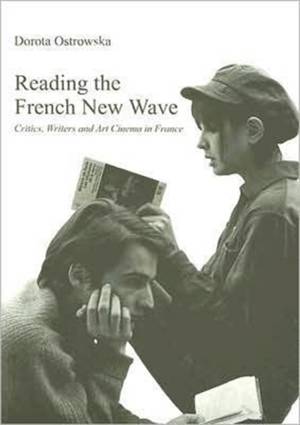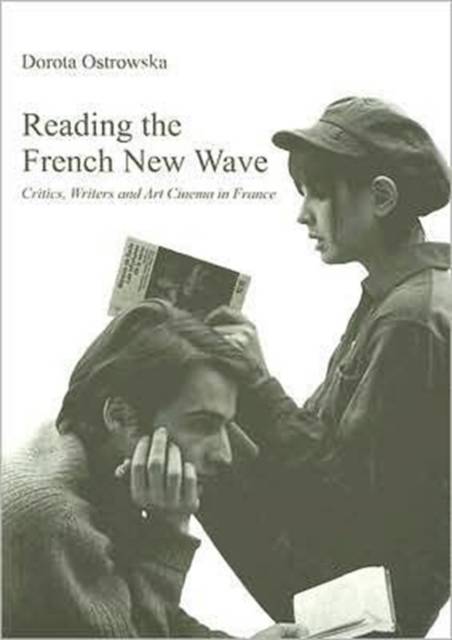
Door een staking bij bpost kan je online bestelling op dit moment iets langer onderweg zijn dan voorzien. Dringend iets nodig? Onze winkels ontvangen jou met open armen!
- Afhalen na 1 uur in een winkel met voorraad
- Gratis thuislevering in België vanaf € 30
- Ruim aanbod met 7 miljoen producten
Door een staking bij bpost kan je online bestelling op dit moment iets langer onderweg zijn dan voorzien. Dringend iets nodig? Onze winkels ontvangen jou met open armen!
- Afhalen na 1 uur in een winkel met voorraad
- Gratis thuislevering in België vanaf € 30
- Ruim aanbod met 7 miljoen producten
Zoeken
Reading the French New Wave
Critics, Writers and Art Cinema in Franceâ
Dorota Ostrowska
Paperback | Engels
€ 49,45
+ 98 punten
Omschrijving
One of the most important movements in cinema history, the French New Wave of directors such as Jean-Luc Godard and Alain Resnais not only revitalised French cinema, but permanently shifted cinema's aesthetic horizons by incorporating the narrative complexities of emerging modernist literature such as Alain Robbe-Grillet, Marguerite Duras and Jean Cayrol. This volume is the first title to comprehensively analyse these links between the New Wave and the New Novel, exploring intellectual figures such as Roland Barthes and Jorge Luis Borges, and their relationship with French cinema and its theorists, including Christian Metz and Noel Burch, as well as discussing groundbreaking films such as Hiroshima mon amour (1959) and L'Année dernière à Marienbad (1962). Examining these connections between the cinematic and the literary avant gardes, Reading the French New Wave locates France's filmmaking revolution as a part of a wider artistic reevaluation of the mid-twentieth century.
Specificaties
Betrokkenen
- Auteur(s):
- Uitgeverij:
Inhoud
- Aantal bladzijden:
- 256
- Taal:
- Engels
Eigenschappen
- Productcode (EAN):
- 9781905674572
- Verschijningsdatum:
- 19/03/2008
- Uitvoering:
- Paperback
- Formaat:
- Trade paperback (VS)
- Afmetingen:
- 152 mm x 210 mm
- Gewicht:
- 326 g

Alleen bij Standaard Boekhandel
+ 98 punten op je klantenkaart van Standaard Boekhandel
Beoordelingen
We publiceren alleen reviews die voldoen aan de voorwaarden voor reviews. Bekijk onze voorwaarden voor reviews.











